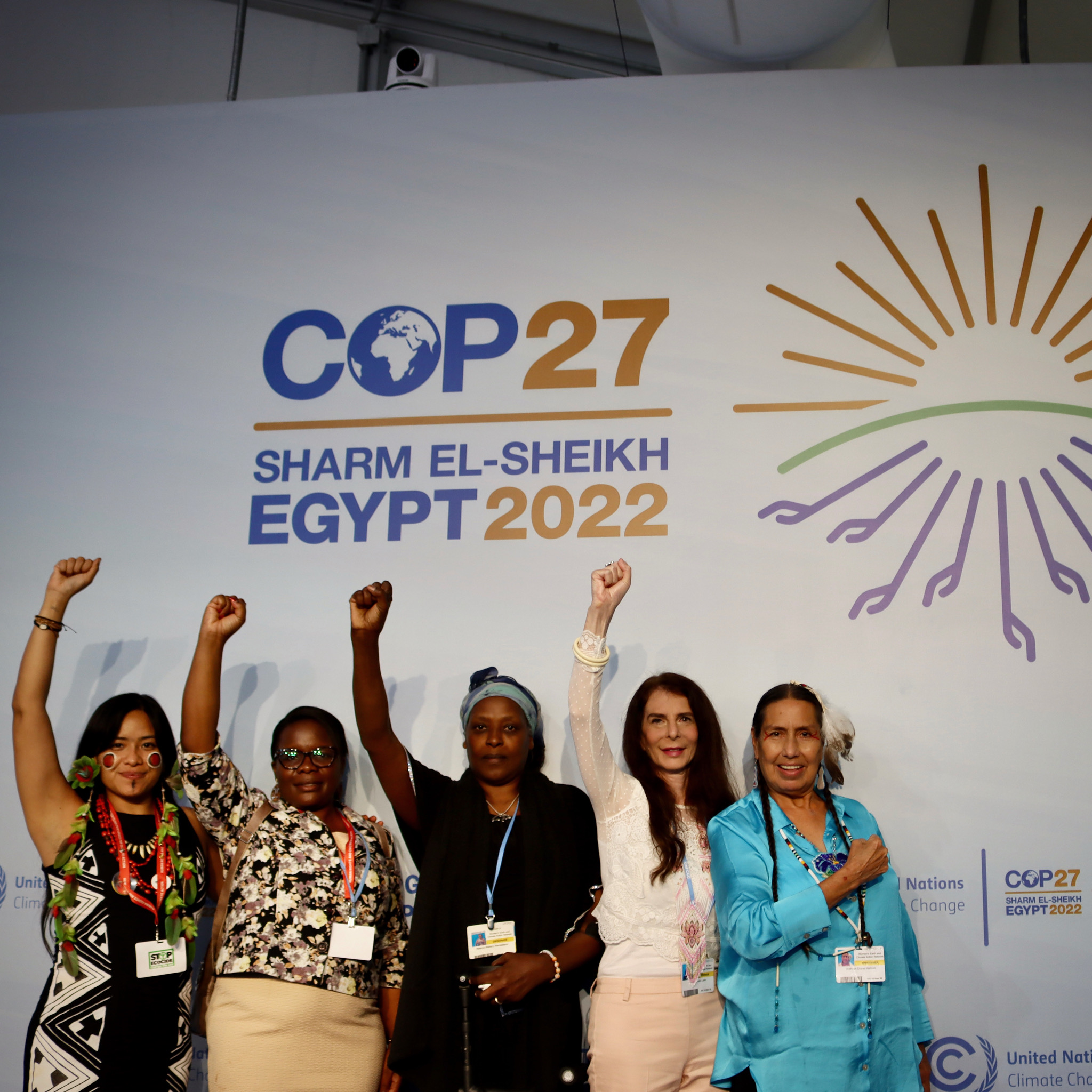
From COP 27: Gender Data is important for the New Collective Quantified Goal on Climate Finance
At COP 27, the FEMNET delegation has been following four key areas: Adaptation, Loss and Damage, Climate Finance and Gender. These areas are crucial as they address the needs and lived experiences of women, especially those from the global south whose lives and livelihoods are affected disproportionately and severely by the climate crisis.
As the first week of COP ends, gender negotiations are not advancing as there are many discussions on financing the Gender Action Plan (GAP), and little progress and commitment from parties on this, and as I write this, the matter is now at ministerial level as negotiations did not bear fruit. It is worrying that on 14th November, which was the Gender Day at COP 27, there still was not much clarity as to the expected outcome of the ministerial deliberations on financing of the GAP. It is, however, clear that the Gender Action Plan which has a component on monitoring and reporting is crucial to the formulation of the New Collective Quantified Goal on Climate Finance (NCQG). The NCQG is a decision reached by Parties, that prior to 2025, they would set a goal from the floor of USD 100 billion per year which would take the needs and priorities of developing countries into account. As it stands, several informal consultations have already been held, and as people debate on text, substantive issues are emerging.
On Friday, 11 November 2022, the Standing Committee on Finance (SCF) shared its reports and assessment of financial flows. They raised a key issue that impacted their methodology, and this was data relating to country, sector, asset and entity. They also raised issues on tracking the USD 100 billion Climate Finance to developed countries per year which were a lack of guidance on how to measure and track the goal and challenges related to data availability and consistency. Another issue was that stakeholders have differing views on the role and emphasis of climate finance, as this was found to be contextual. All these issues impact goal setting for the NCQG.
Earlier in the week, there were several discussions on the NCQG agenda item. Key issues coming from these meetings were the role of private finance, unsurprisingly led by the US, coming at a time when 194 state parties are now reporting mitigation ambition, up from 88 in 2010. This was an issue that developing states including India were categorical on, asserting that private finance can never be an answer for climate related investments as the interest rates would increase debt risks of developed states to unsustainable levels. Small Island States indicated that the goal should look at special needs and circumstances of developing states, mentioning that the timeframe for discussing and coming up with this goal was time consuming and costly for these states. Importantly, these discussions are being held at a time when Nigeria, Pakistan and other developing states are reeling from climate-induced floods that have displaced millions and led to the loss of thousands of lives and diversion of resources for rapid response and humanitarian action.
As the goal is being discussed, it is disheartening that the general data gaps identified do not refer to gender data gaps and could potentially lead to greater gender data mismatches or increasing gender data gaps. We may therefore have challenges in coming up with a definition of Climate Finance as indicated in the reports of the Standing Committee on Finance, and this would certainly mean that aspects of gender related to climate finance may be difficult to incorporate in the new goal. Some key variables that the SCF indicated should be considered when tracking climate finance, are tracking of global finance, tracking finance from developed to developing nations and tracking finance in government budgets.
In light of this and as the goal is being discussed until 2024, it is important for non-state actors to support governments in tracking public finance. Women’s Rights Organizations in particular should identify gender metrics related to climate within state budgets and help in tracking these at national and sub national levels. This will not only help in tracking public finance data but also in identifying key gaps and opportunities that can constitute the goal.
On the other hand, the same WROs can document economic and non-economic losses and damages experienced by women and indigenous and marginal communities at the frontlines of the climate crisis and help in quantifying these and relaying these to governments and other entities so as to help in formulating the quantum of this goal. This data will also advance the definition of climate finance.
We urge parties to be bolder and more ambitious as ministerial deliberations commence this week. We continue to follow the discussions on climate finance at COP 27. Engage and follow conversations on twitter #AfricanFeministStories. Read about Gender data here.
The aforementioned was written by Anne Songole, the Climate Justice Coordinator at FEMNET. Anne Songole was part of the COP 27 team in Sharm el Sheikh, for more information contact her via a.songole@femnet.or.ke .






